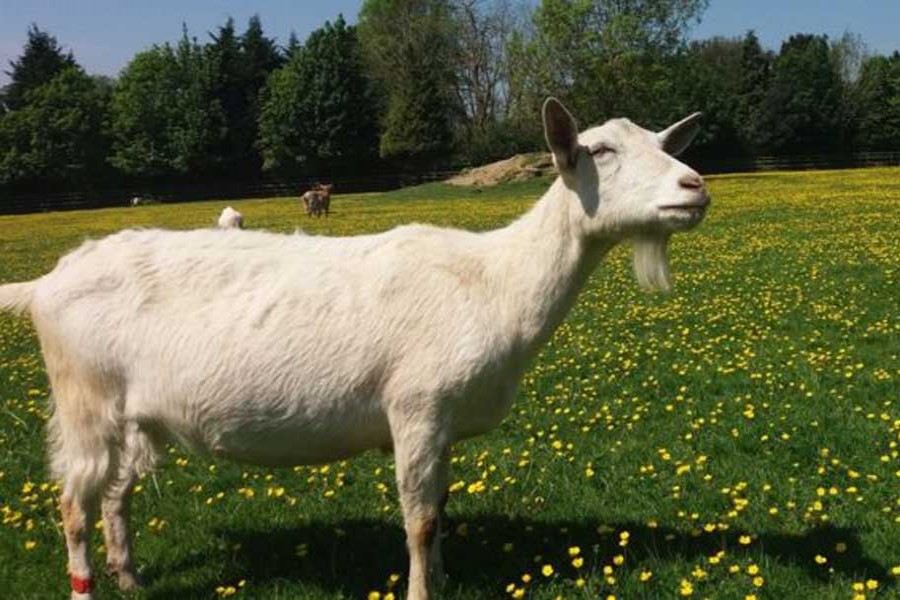Scientists have found that goats are drawn to humans with happy facial expressions.
The result suggests a wider range of animals can read people's moods than was previously thought.
The team showed goats pairs of photos of the same person, one of them featuring an angry expression, and the other a happy demeanour.
The goats in the study made a beeline for the happy faces, the researchers report in the journal Open Science.
The result implies that the ability of animals to perceive human facial cues is not limited to those with a long history of working as human companions, such as dogs and horses.
Instead, it seems, animals domesticated for food production, such as goats, can also decipher human facial cues.
The study was carried out at the Buttercups Sanctuary for Goats in Kent, UK.
Co-author Dr Alan McElligott, from Queen Mary, University of London, and colleagues set up pairs of black-and-white photos about 1.3m apart on one wall in their test area.
Then, a goat would be let loose to explore the set-up.
The researchers found that the goats strongly preferred the smiling faces, approaching the happy faces before acknowledging the angry photos. They also spent more time examining the smiling faces with their snouts.
But the effect was only significant when the happy-faced photo was placed on the right-hand side.
When the happy photos were placed on the left, the goats showed no significant preference either way.
The researchers think this is because the goats are using one side of their brain to process the information - something that's seen in other animals.
It could either be that the left side of the brain processes positive emotions, or that the right side of the brain is involved in avoidance of angry faces.
Dr McElligott, who is now based at the University of Roehampton, said: "The study has important implications for how we interact with livestock and other species, because the abilities of animals to perceive human emotions might be widespread and not just limited to pets."
Co-author Natalia Albuquerque, from the University of Sao Paulo, Brazil, said: "The study of emotion perception has already shown very complex abilities in dogs and horses.
"However, to date, there was no evidence that animals such as goats were capable of reading human facial expressions. Our results open new paths to understanding the emotional lives of all domestic animals."
The study could also have implications for animal welfare, helping change perceptions of these livestock animals by highlighting their sentience.


